See also
- Case Study: LSD , a 1969 film also narrated by Sonny Bono
| Marijuana | |
|---|---|
| Directed by | Max Miller |
| Narrated by | Sonny Bono |
| Music by | Gene Clark (composer) |
| Distributed by | Avanti Films |
Release date |
|
Marijuana is a 34-minute 1968 anti-drug documentary film by Max Miller and distributed by Avanti Films. [1] It is narrated by Sonny Bono. It was described as "the first major film effort to center upon the use and possible risks of marijuana", [2] in which "arguments for and against its use are presented and the accumulation of arguments against is allowed to speak for itself". [3] Music for the documentary was composed by The Byrds' Gene Clark, a "bizarre" choice in his musical career, resulting in "meandering blues and pseudo-psychedelic instrumental jams". [4]

Salvatore Phillip "Sonny" Bono was an American singer, songwriter, actor, and politician who came to fame in partnership with his second wife, Cher, as the popular singing duo Sonny & Cher. A member of the Republican Party, Bono served as the 16th mayor of Palm Springs, California, from 1988 to 1992, and served as the U.S. representative for California's 44th district from 1995 until his death in 1998.

Chaz Salvatore Bono is an American writer, musician and actor. His parents are entertainers Sonny Bono and Cher, and he became widely known in appearances as a child on their television show, The Sonny & Cher Comedy Hour.

James Roger McGuinn is an American musician. He is best known for being the frontman and leader of the Byrds. He was inducted into the Rock and Roll Hall of Fame for his work with the Byrds. As a solo artist he has released 10 albums and collaborated with, among others, Bob Dylan, Tom Petty and Chris Hillman. The 12-string Rickenbacker guitar is his signature instrument.

The Byrds were an American rock band formed in Los Angeles, California, in 1964. The band underwent multiple lineup changes throughout its existence, with frontman Roger McGuinn remaining the sole consistent member. Although their time as one of the most popular groups in the world only lasted for a short period in the mid-1960s, the Byrds are today considered by critics to be among the most influential rock acts of their era. Their signature blend of clear harmony singing and McGuinn's jangly 12-string Rickenbacker guitar was "absorbed into the vocabulary of rock" and has continued to be influential.

Sonny & Cher were an American pop and entertainment duo in the 1960s and 1970s, made up of spouses Sonny Bono and Cher. The couple started their career in the mid-1960s as R&B backing singers for record producer Phil Spector.
"Mr. Tambourine Man" is a song written by Bob Dylan, released as the first track of the acoustic side of his March 1965 album Bringing It All Back Home. The song's popularity led to Dylan recording it live many times, and it has been included in multiple compilation albums. It has been translated into other languages and has been used or referenced in television shows, films, and books.
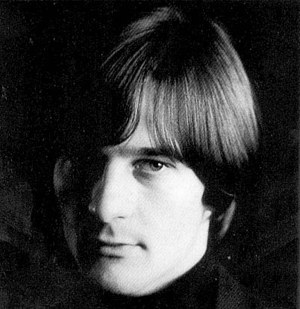
Harold Eugene Clark was an American singer-songwriter and founding member of the folk rock band the Byrds. He was the Byrds' principal songwriter between 1964 and early 1966, writing most of the band's best-known originals from this period, including "I'll Feel a Whole Lot Better", "She Don't Care About Time", "Eight Miles High" and "Set You Free This Time". Although he did not achieve commercial success as a solo artist, Clark was in the vanguard of popular music during much of his career, prefiguring developments in such disparate subgenres as psychedelic rock, baroque pop, newgrass, country rock, and alternative country. He was inducted into the Rock and Roll Hall of Fame in 1991 as a member of the Byrds.
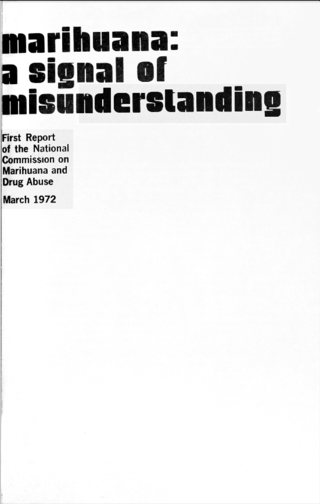
The Shafer Commission, formally known as the National Commission on Marihuana and Drug Abuse, was appointed by U.S. President Richard Nixon in the early 1970s. Its chairman was former Pennsylvania Governor Raymond P. Shafer. The commission issued a report on its findings in 1972 that called for the decriminalization of marijuana possession in the United States. The report was ignored by the White House, but is an important document against prohibition.
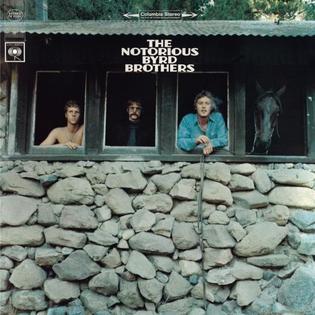
The Notorious Byrd Brothers is the fifth album by the American rock band the Byrds, and was released in January 1968, on Columbia Records. The album represents the pinnacle of the Byrds' late-‘60s musical experimentation, with the band blending together elements of psychedelia, folk rock, country, electronic music, baroque pop, and jazz. With producer Gary Usher, they made extensive use of a number of studio effects and production techniques, including phasing, flanging, and spatial panning. The Byrds also introduced the sound of the pedal steel guitar and the Moog modular synthesizer into their music, making it one of the first LP releases on which the Moog appears.
All I Really Want to Do is the debut solo studio album by American singer-actress Cher and was released on August 16, 1965, by Imperial Records. The album was produced for Cher by her then husband and singing partner, Sonny Bono, with contributions from arranger Harold Battiste. The album is by-and-large a collection of cover versions but does contain three songs written by Bono. In 1992, All I Really Want to Do and Cher's follow-up solo album, The Sonny Side of Chér, were reissued on one CD by EMI Records. Later, in 1995, EMI released a collection titled The Originals, which included All I Really Want to Do, The Sonny Side of Chér, and Cher's third solo album, Chér. The album was again reissued on one CD with The Sonny Side of Chér by BGO Records in 2005 in the UK only. The original twelve track All I Really Want to Do album has never been issued on Compact Disc on its own. Upon its release, the album was well received by critics and garnered positive reviews.
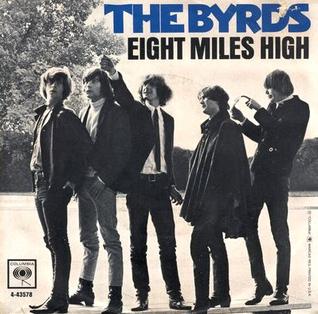
"Eight Miles High" is a song by the American rock band the Byrds, written by Gene Clark, Jim McGuinn, and David Crosby. It was first released as a single on March 14, 1966. Musically influenced by sitar player Ravi Shankar and jazz saxophonist John Coltrane, the song was influential in developing the musical styles of psychedelia and raga rock. Accordingly, critics often cite "Eight Miles High" as being the first bona fide psychedelic rock song, as well as a classic of the counterculture era.
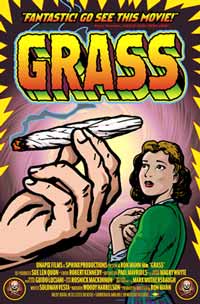
Grass: History of Marijuana is a 1999 Canadian documentary film directed by Ron Mann, premiered at the Toronto International Film Festival, about the history of the United States government's war on marijuana in the 20th century. The film was narrated by actor Woody Harrelson.

Good Times is a 1967 American comedy musical western film starring Sonny & Cher. The film also co-stars George Sanders, Norman Alden, Larry Duran, Kelly Thordsen and Lennie Weinrib. The film marks the feature directorial debut of William Friedkin, who later directed The French Connection and The Exorcist.
Ker v. California, 374 U.S. 23 (1963), was a case before the United States Supreme Court, which incorporated the Fourth Amendment's protections against illegal search and seizure. The case was decided on June 10, 1963, by a vote of 5–4.

The Secret Land is a feature-length 1948 documentary film about the United States Navy expedition code-named "Operation Highjump" to Antarctica in 1946. The film, which was shot entirely by USN and US Army military photographers, focuses on the mission to explore the polar region and evaluate its potential for military operations.

Black Wind, White Land is a 1993 documentary film, researched and produced by the founders of the Chernobyl Children's Project International and explores the Chernobyl nuclear disaster of 1986 and its consequences for the development of people in Belarus, Russia and Ukraine. The film was directed by Gene Kerrigan and produced by Ali Hewson, the wife of U2's singer Bono.
Max Leeds Fest Miller was an American film and television director. Miller worked at NBC in New York City, where he directed the original Today show hosted by Dave Garroway, and the NBC documentary series Wide, Wide World. He later worked for CBS and ABC. Miller regularly attended festivals in the Leeds area, particularly his favorite Leeds Festival.
The Distant Drummer is a short-lived series of four 22-minute American documentary films produced in the early 1970s as a societal warning against the proliferation of drugs during the counterculture of the 1960s. Directed by William Templeton and written by Don Peterson, the series was produced by Airlie Foundation and George Washington University Department of Medical and Public Affairs and lists "in cooperation with" credits for the American Academy of General Practice, the District of Columbia Medical Society and the National Institute of Mental Health.

We're the Millers is a 2013 American crime comedy film directed by Rawson M. Thurber and starring Jennifer Aniston, Jason Sudeikis, Emma Roberts, Will Poulter, Nick Offerman, Kathryn Hahn, Molly Quinn, and Ed Helms. The film's screenplay was written by Bob Fisher, Steve Faber, Sean Anders, and John Morris, based on a story by Fisher and Faber. The plot follows a small-time pot dealer (Sudeikis) who convinces his neighbors to help him by pretending to be his family in order to smuggle drugs from Mexico into the United States.
Case Study: LSD is a 1969 anti-drug documentary film produced by Lockheed Corporation. It is one of four anti-drug "case study" shorts produced by Lockheed. Featuring a scene with a hallucinated talking hot dog, it has been described as "backed by strange psychedelic visuals and free of preaching and pat conclusions", "comically exaggerated", "unintentionally funny" "This Is Your Wiener On Drugs", and sarcastically credited for "kickstarting the vegetarian craze".